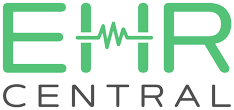Exploring the Connection Between Billing and Electronic Health Records (EHR)
In the ever-evolving landscape of healthcare, the utilization of Electronic Health Records (EHR) has become the new standard for medical practices, clinics, and hospitals. This digital transformation has revolutionized the way patient data is stored and

managed. However, EHR systems are not just about efficient record-keeping; they have a significant impact on the financial aspect of healthcare as well. This blog post delves into the intricate relationship between billing and Electronic Health Records, highlighting their interconnectedness and the benefits they offer to both healthcare providers and patients.
1. Streamlined Data Entry
One of the most significant advantages of integrating billing and EHR systems is the streamlined data entry process. When patient records are updated in real-time through EHR, the billing department can access accurate information promptly. This eliminates the need for manual data transfer, reducing the risk of errors and ensuring that billing is based on the most up-to-date patient information.
2. Improved Accuracy and Reduced Errors
Billing inaccuracies can lead to claim denials, delayed payments, and even legal complications. EHR systems help reduce these errors by automatically capturing and updating patient data. This ensures that the billing process is more precise, minimizing costly mistakes and the time spent on claim appeals.
3. Enhanced Revenue Cycle Management
The connection between billing and EHR is pivotal for efficient revenue cycle management. EHR systems provide a comprehensive overview of a patient’s medical history, treatments, and prescribed medications. Billing departments can leverage this information to bill accurately for services provided, leading to increased revenue and a healthier financial bottom line.
How EHRCentral enhances your healthcare practice?
4. Increased Compliance and Regulation Adherence
The healthcare industry is heavily regulated, and compliance with these regulations is paramount. EHR systems facilitate compliance by maintaining detailed records of patient encounters and treatments, making it easier to demonstrate that billing practices meet legal and ethical standards. This not only protects healthcare providers from legal complications but also instills confidence in patients.
5. Patient Engagement and Transparency
Patients today are more involved in their healthcare decisions, and they often want to understand the costs associated with their treatments. EHR systems allow healthcare providers to share billing information with patients, promoting transparency and trust. Patients can access their billing statements, understand the charges, and make informed decisions about their healthcare.
6. Efficient Claims Management
Billing departments are responsible for submitting claims to insurance companies promptly. EHR systems enable healthcare providers to generate and submit claims more efficiently by automating the process. This speeds up reimbursement and ensures that healthcare organizations receive payments in a timely manner.
7. Data Analytics and Performance Improvement
The integration of billing and EHR data allows healthcare organizations to conduct in-depth data analysis. This helps identify trends, patterns, and opportunities for performance improvement. By understanding the financial aspects of healthcare delivery, organizations can make informed decisions to enhance their services and profitability.
Conclusion
The connection between medical billing and Electronic Health Records is undeniably strong. EHR systems have revolutionized healthcare by not only improving patient care but also streamlining the financial aspects of medical practice. This integration leads to more accurate billing, reduced errors, and efficient revenue cycle management. It also ensures compliance with regulations, promotes transparency with patients, and supports data-driven decision-making. As the healthcare industry continues to evolve, the relationship between billing and EHR will remain a crucial component of providing quality care while maintaining a healthy financial foundation for healthcare organizations.





